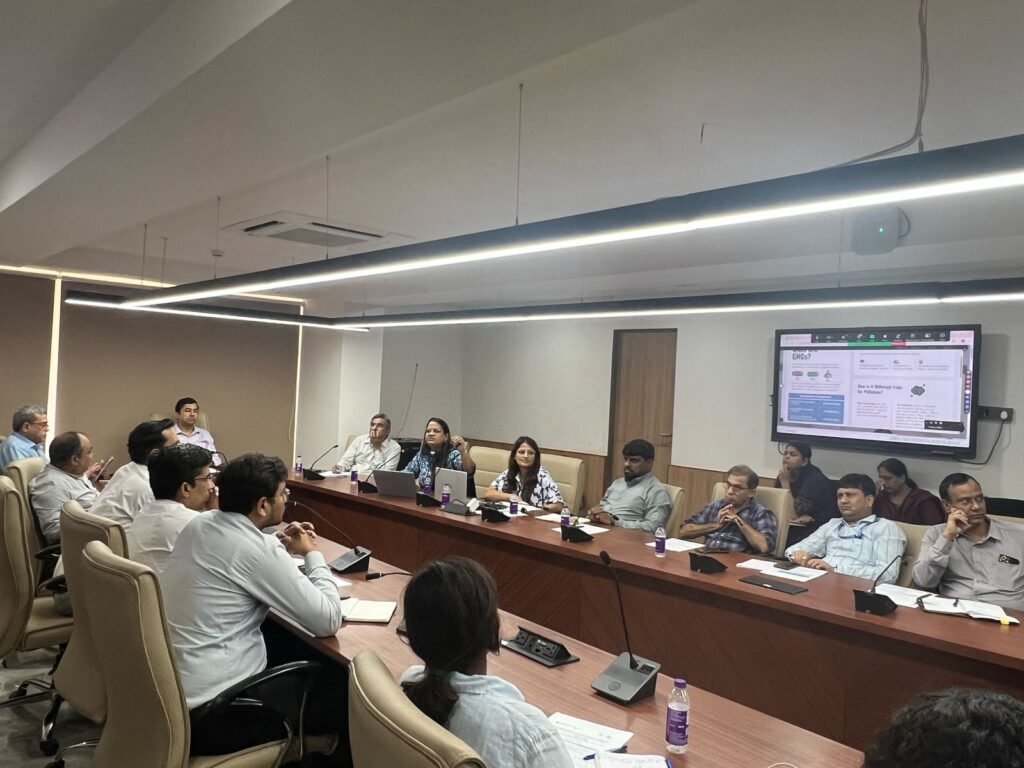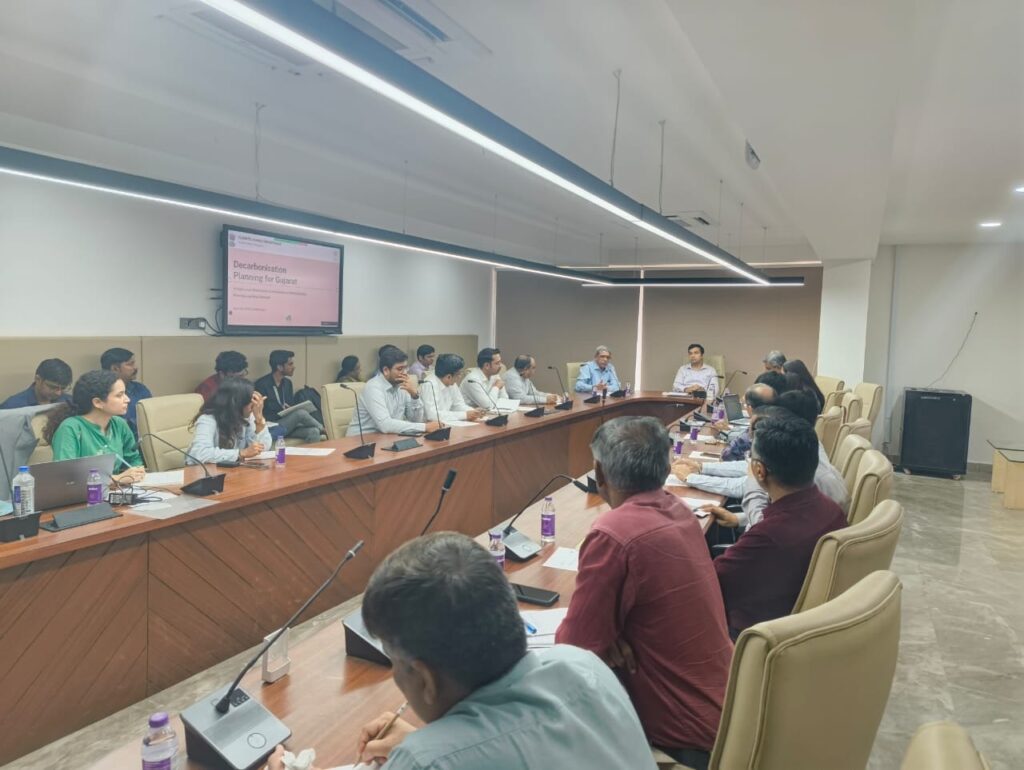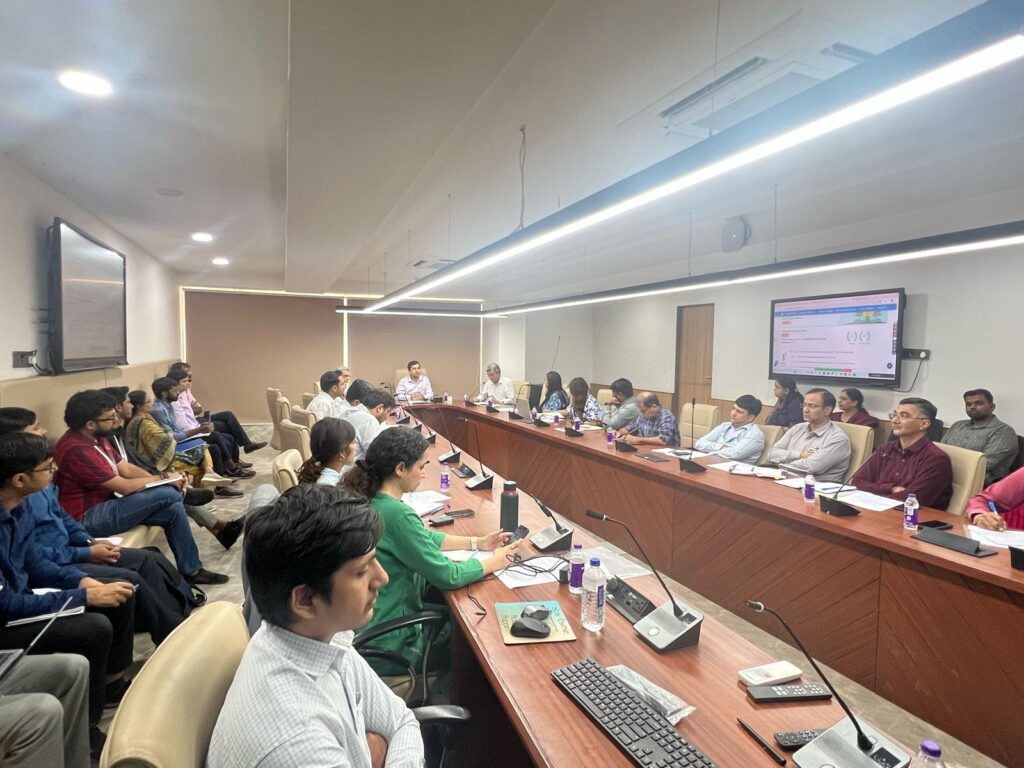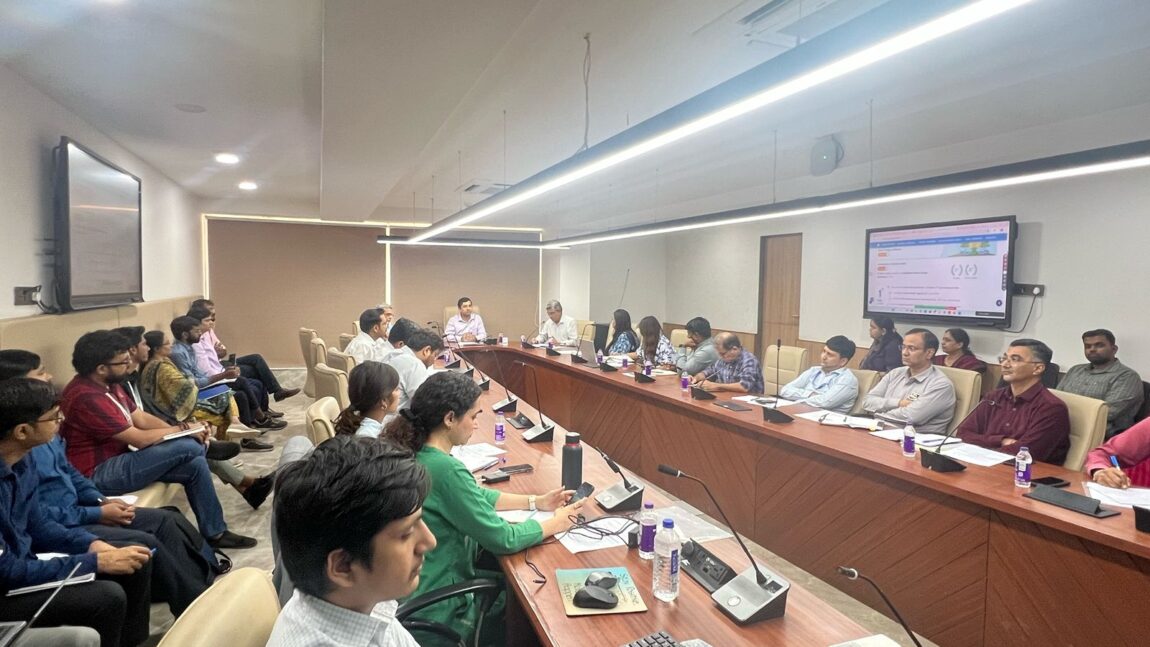11th July, 2025 | Gandhinagar, Gujarat



Following the successful launch of the Gujarat Climate Action Tracker (GCAT), a high-level stakeholder consultation was held on 11 July 2025 in Gandhinagar, Gujarat on ‘Understanding Priorities and Way Forward for decarbonisation planning for Gujarat.’ This consultation was chaired by Shri Ajay Prakash, IAS, Director, Gujarat Energy Development Agency (GEDA), and co-chaired by Mr. D. M. Thaker, Member Secretary, Gujarat Pollution Control Board (GPCB). The proceeding also saw active participation from key state-level departments, district administrators, civil society organizations, and technical experts.
Shri Ajay Prakash and Shri D. M. Thaker both appreciated Vasudha Foundation’s effort in creating the GCAT that will support sub-state level planning for achieving Gujarat’s climate and net zero goals. Shri Ajay Prakash also urged district administrators and line departments to collaborate and provide data necessary to develop decarbonisation plans in the next phase. Shri D. M. Thaker highlighted the role of regulatory bodies achieving a net zero target and how the GCAT can be useful to departments and district administrators for this purpose.
The key areas of discussion included: demonstration of the GCAT & its features; sensitising district and line departments on Gujarat’s Net Zero vision for 2047; and the importance of a bottom-up approach to decarbonisation planning. Vasudha Foundation presented the roadmap for Phase 2 of the GCAT, focusing on bottom-up decarbonisation planning – that would factor in local climate and transition risks, vulnerabilities, and resilience needs. Discussions explored sectoral priorities, high emitting sectors, with the example of Surat’s textile clusters which represents a major opportunity for electrification and emissions reduction. Further, one session focused on data needs, inter-departmental collaboration, and stakeholder inputs necessary to support Gujarat’s Net Zero goal.
The consultation saw active online participation from district administrators (especially from the priority districts), who elucidated on a few key challenges and priority areas for their respective districts. In-person attendees including the line department representatives and civil society organisations provided insights on decarbonisation planning and discussed the aspects that often get overlooked while developing climate plans.




